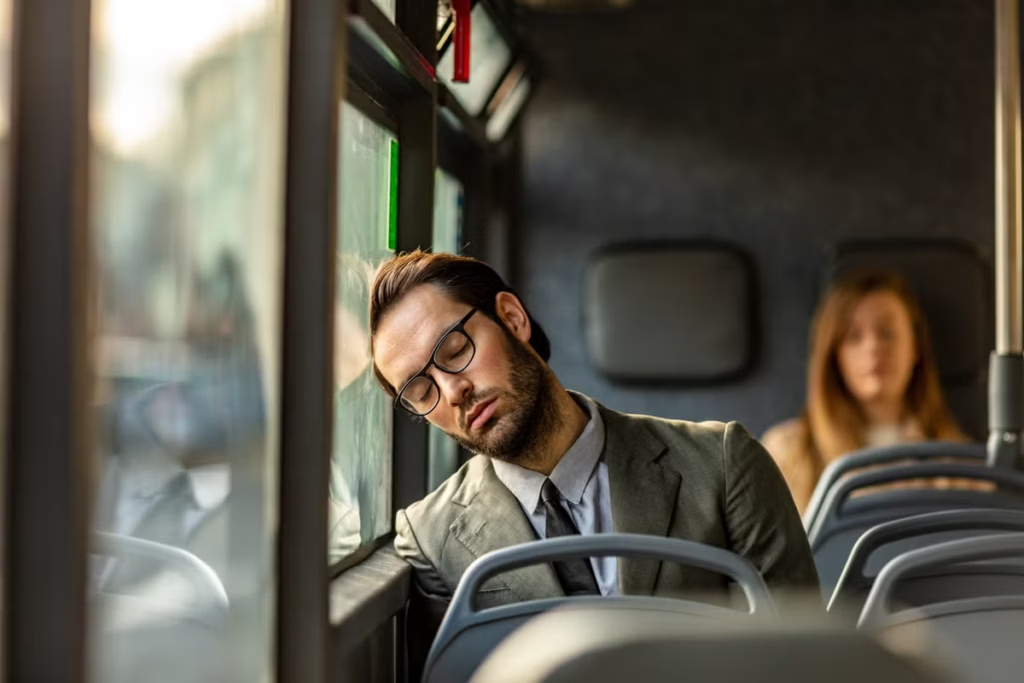If you’re one of those rare people who fall asleep straight away, never get up to go to the bathroom and bounce out of bed every morning without a care in the world, then it’ll probably come as a shock that some seriously weird stuff can go down after dark.
A lot has been said and written about falling asleep, the importance of quality sleep and why *not* shotgunning Redbull before bed is probably a good idea, but what about the other side? Well, you’re in luck because in this week’s MH Mind Matters we’re diving into the nocturnal vault. From sleep paralysis to random nighttime emissions, it’s time to out the secret side to sleep and the best solves for them.
The Secret: Sleep paralysis demons
‘Sleep Paralysis’ (and the boogeymen that come with it) is a condition affecting up to 8% of the population and like sleep waling/talking it’s a REM Sleep Disorder that occurs as the brain shifts in or out of sleep. Chances are you might have had one at least once, or have a flatmate who has.
Commonly, the condition involves a temporary state of paralysis as the mind partially wakes and shifts. Being unable to move with a choking or heavy chested feeling is common, as is sensing a malevolent presence or (worse) seeing it moving toward you around the room.
The Solve
Sleep Paralysis can be a terrifying experience but it’s not something that causes actual harm. Stress, caffeine, alcohol or poor sleep routines are often behind it so reducing these and upping sleep hygiene can really help. For frequent overnight visits a review with a sleep doc and medication might be needed.
The Secret: Wet dreams in adults
Termed ‘Nocturnal Emissions’ medically, wet dreams actually occur not uncommonly in adults too (and yes, women have them as well). So if you’re still having them now and then at 32, you’re not alone.
Technically a wet dream represents a stimulation-free orgasm that occurs during REM sleep. They’re linked to testosterone fluctuations as well as to times when sexual activity drops off, but exact what’s and why’s aren’t fully known. Surprisingly wet dreams aren’t just linked to erotic dreams either and can happen in any dream full stop (which might be comforting to know for those “what the…” morning moments).
The Solve
This one doesn’t necessarily need a solve per se. If you do still get them it’s likely it’s rare, but either way it’s not a sign of something wrong. Myths that wet dreams hit sperm health or are a sign of repressed sexual needs aren’t backed, so don’t read in too deep. If they’re happening a lot research suggests avoiding sleeping on your stomach and getting more ‘daytime emissions’ in might help.
The Secret: Sleep Talking & Walking
There was always one kid at the sleepover right (maybe that kid was you). Stats for regularly walking and talking overnight hit less than 5% of adults, but for those who do it can be a real dampner on R&R.
In an opposite way to sleep paralysis, parasomnias like this represent a failure of the brain to keep the body ‘off’ while we’re asleep. Talking and walking are fairly common, but complex behaviours like sleep eating, working and even sex are known too.
The Solve
Locking in a sleep routine with timing, avoiding caffeine and alcohol, reducing stress levels and avoiding stimulating the brain with blue light before bed can all really help here. For more frequent or potentially dangerous night walkers certain medications are often effectively used. You’ll be pleased to know too that it’s a myth that it’s dangerous to wake a sleep walking/talking person, however this might cause upset or disorientation, so guiding them gently back to bed is best.
The Secret: Teeth Grinding
Partner been asking why you were rubbing china plates together all night? Chances are you’ve got what medicine calls Bruxism. Nightly tooth grinding is actually something that most of us do now and then, but roughly 10% of adults will grind and clench on the regular.
Grinding overnight can increase with stress, too much caffeine, alcohol and drugs or from jaw muscles wound tightly in the day. Tell tale signs include an aching jaw or dull headache in the morning, and (of course) an elbow in the ribs from bae.
The Solve
You’ll be pleased to know that looking after sleep hygiene can benefit bruxism too. Getting help to reduce stress or anxiety, reducing caffeine and lightening nighttime alcohol or drug use can really help. For those with dental damage or more severe effects, fitted mouth guards and further medical options work so book in with your dentist or doc.













